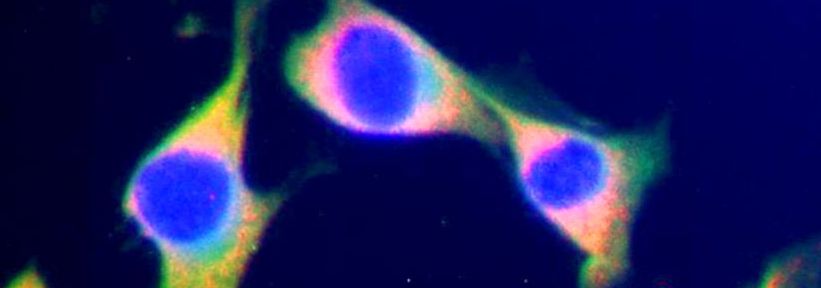
Current Research
A number of research projects are ongoing which are mutually supportive at different technical levels investigating the functioning of nerve, muscle and epithelial cells, at molecular, cellular, organ and whole animal levels. They are focussed on:
Professor O’Halloran's primary research interest is the control of breathing in health and disease with additional interests in cerebrovascular physiology. His research group primarily utilise experimental models of human respiratory diseases including muscular dystrophy and sleep apnoea, but studies extend to observational and interventional studies in humans including field studies at high altitude.
Primary research is the neuro-humoral control of the kidney and how it is deranged in renal and cardiovascular diseases.
Development of CRISPR gene editing as a potential Future Medicine for cystic fibrosis, cystinosis, and other rare diseases.
The cellular and molecular mechanisms underlying the regulation of salt reabsorption in the kidney.
Investigation of the cellular and molecular mechanisms that control calcium signalling within cellular organisms. Current projects are exploring how calcium signalling mechanisms regulate the physiology of human oesophageal adenocarcinoma cells and of Phytophthora infestans, the causative pathogen of late blight of potatoes and tomatoes.
Dr. McDonald’s primary research interest is in understanding how the neonatal mammal responds to perinatal stressors such as hypoxia and inflammation using animal models. Our lab is also collaborating with INFANT to analyse clinical near infrared spectroscopy data, that provides information on the cerebral oxygenation of neonatal infants, to examine if there are correlations between the signal features and poor clinical outcomes of the infants.
Dr T. Ruane O' Hora and Dr Farouk Markos
Invivo cadiovascular physiology & pharmacology with a focus on endothelium and vascular function.
These areas of studies are undertaken at a basic scientific level but all impact, to a greater or lesser degree, on the cardiovascular system and its regulation and may contribute to understanding the progression of a range of cardiac and vascular diseases. Thus, these areas of research are poised to take advantage of post-genomic era and to open up investigations in translational research.
My research group are focussed on investigating cellular and molecular mechanisms underpinning neurally-regulated physiological and pathophysiological events in the central nervous system and in the intestines. Neuro-immune and neuro-endocrine signalling are being investigated in the context of functional bowel disorders, such as Irritable Bowel Syndrome and the dystrophinopathy, Duchenne Muscular Dystrophy.
Dr Hyland has over 20 years’ experience in gastrointestinal physiology and enteric neuroscience and his fields of interest include enteric physiology and pharmacology, the brain-gut axis, and microbiota-host interactions. His laboratory has developed expertise in assessing gastrointestinal physiology using the Ussing chamber technique. Niall is also a Funded Investigator in the ‘Gut Brain Microbe Axis’ theme at APC Microbiome Ireland and has long-established collaborations with global leaders in the microbiome-gut-brain axis field.
The roles that metabotropic glutamatergic and muscarinic cholinergic receptor signalling play in modulating function within central neurones and in neurodegenerative conditions such as Alzheimer's disease and Down Syndrome primarily using electrophysiological and calcium imaging techniques.
Jennifer Hollywood's research area of interest is using gene editing tools to model and study genetic diseases and to find potential new treatments. Her current area of research is on Cystinosis which is a lysosomal storage disease that is caused by defective cystinosin transporter activity leading to an accumulation of cystine in every cell of the body. The kidney is particularly affected with kidney proximal tubule dysfunction followed by end stage renal disease. She uses induced pluripotent stem cells (iPSCs), kidney organoids and animal models to study cystinosis and find and test new treatments. Her work in this area has led to 2 potential new therapies which are progressing to clinical trials in 2025.
Dr Casey's current research focuses on the investigation of psychedelic-inspired neuroprotective therapies for neurodegenerative diseases and disorders with a significant inflammatory milieu, and unravelling the mechanisms by which these compounds act within the nervous system.
Colin’s research interests are multidisciplinary spanning Neurophysiology and Engineering. His group focuses on understanding high-level brain physiology underpinning movement, cognition, learning and memory. To understand fundamental brain function, they develop closed-loop brain machine interfaces to interact with ongoing brain activity in real-time while simultaneously recording the activity of hundreds of neurons. By exploiting the fundamental understanding gained using these methods and electronic systems, they seek to develop treatment approaches to correct pathophysiological activity associated with specific brain disorders. Colin and his team additionally investigate the role of brain body interactions including the gut microbiome in influencing activity in these brain networks via the vagus nerve. This includes understanding effects on learning and memory and the potential to drive neurodegeneration in Parkinson’s disease.
Physiology Department
Fiseolaíocht
Contact us
Western Gateway Building Western Road University College Cork
